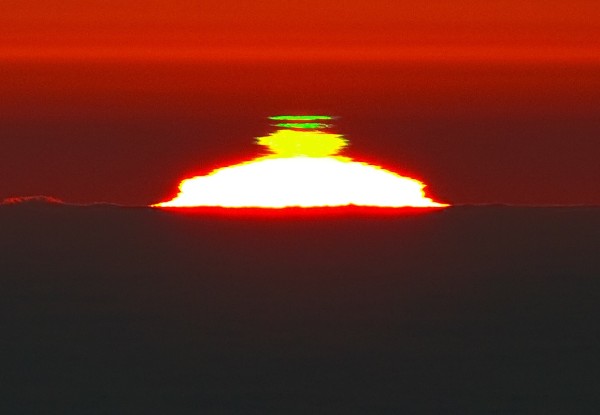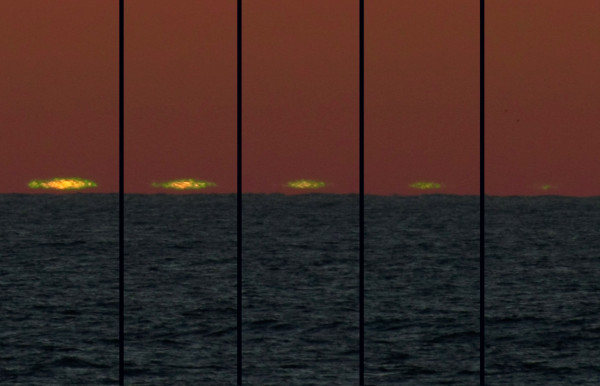“It does no harm to the romance of the sunset to know a little bit about it.” -Carl Sagan
Although I often hear people utter sentiments that knowledge somehow undermines the beauty of the natural world -- quoting some farcical poem about bad teachers like When I Heard The Learn'd Astronomer -- I never quite understood it. How could there possibly be a more engaging, romantic experience than perceiving and knowing at the same time?
So it is with not only the sunset, but with one of the most elusive and inimitable phenomena that sometimes comes along for the ride: the green flash. What is it, what causes it, and what else comes along with it?
Come experience the grandeur and the science of one of our planet's most spectacular natural wonders!



Your eye doctor uses the same optical principle when fitting you for glasses. Classically, the final step of the process is "red-green testing," during which the letters are presented on a split screen, half red and half green. The patient is asked which half is clearer and the lens power adjusted till they are equally blurred: At that time, the convergence point of the more strongly refracted red waves is slightly in front of the retina, and that of the less strongly refracted green waves is slightly behind it. (TMI: Purists will then go "one click into the green" to keep the patient from "cheating" by accommodating, or adding more refractive power with their own natural lens.)
but about the science of the green flash... nothing to see here, move along move along.
Should we not see green flashes at sunrise, as well?
When I first moved to Hawaii, I was told of the green flash. I tried many time to catch/see the green flash to no avail. until one day I was waiting there staring for the last minute or so but something took my attention away for about 50+ seconds of that final minute all of a sudden I thought OH sunset, did I miss it and as I turned my head back I saw the elusive green flash it was sort of like a molten glob of green fire light.
Kinda cool I finally saw the flash. So from that point on to see it I would try and wait just before it goes down, my thinking was not oversaturating my eyes with the orange color but looking down at the black lava or sand until the last few seconds. Sometimes it worked timing was tough.
Not very scientific I know but the ritual added to the experience.
@Ross Presser #3: Yes, indeed! I think it's less "popular" (or publicized, or whatever) just because it's not so common for people to be up before sunrise as it is for them to be up at sunset.